Camping is one of the best ways to connect with nature. However, while you’re out there appreciating the great outdoors, don’t forget that some of its inhabitants might not be as thrilled with your presence. From cheeky critters to larger wildlife, several animals can wreak havoc on your camping gear if you’re not careful. Here’s a list of 12 animals you might encounter on your next adventure that could potentially become your tent’s worst nightmare.
1. Rascally Raccoons
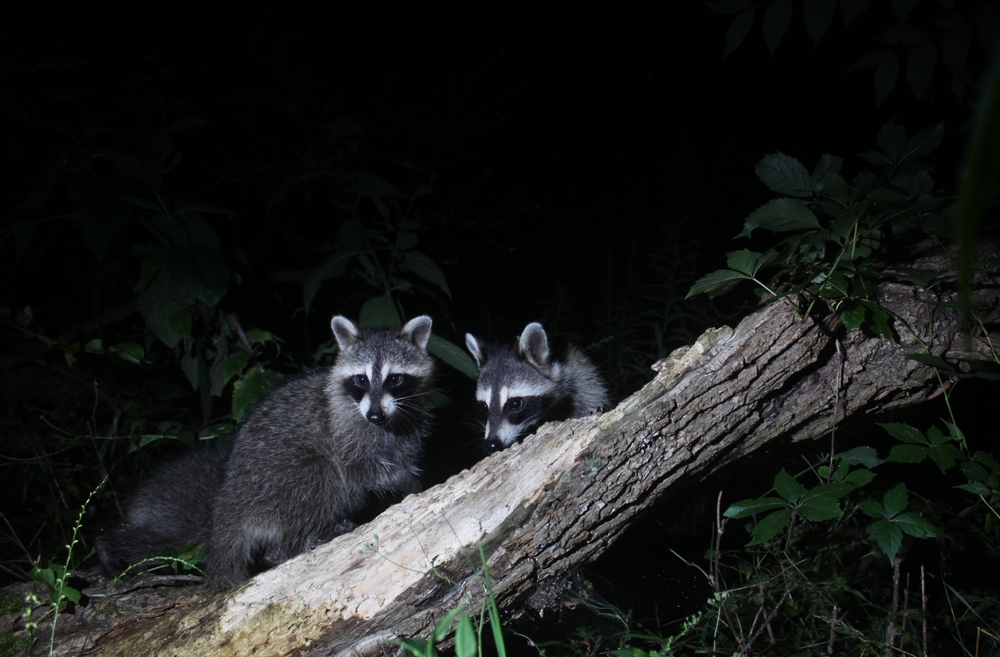
Raccoons are notorious for their curiosity and dexterity, which can make them quite a nuisance when you’re camping. These masked bandits are experts at getting into anything that smells even remotely like food. If you leave your provisions unguarded, don’t be surprised to find them pillaged by morning. They can easily open containers, unzip tents, and cause chaos around your campsite. According to National Geographic, raccoons have adapted so well to human environments that they can thrive in both urban and wilderness areas.
Store all food in sealed containers and use raccoon-proof bins if available to avoid a raccoon raid. Hanging your food in a tree away from your tent is another effective tactic. Clean your campsite thoroughly before going to bed, as even the slightest scent can attract these nocturnal visitors. Also, keep your tent zipped up at all times to prevent them from gaining access. These clever critters can be persistent, so vigilance is key when camping in raccoon territory.
2. Bears on the Prowl
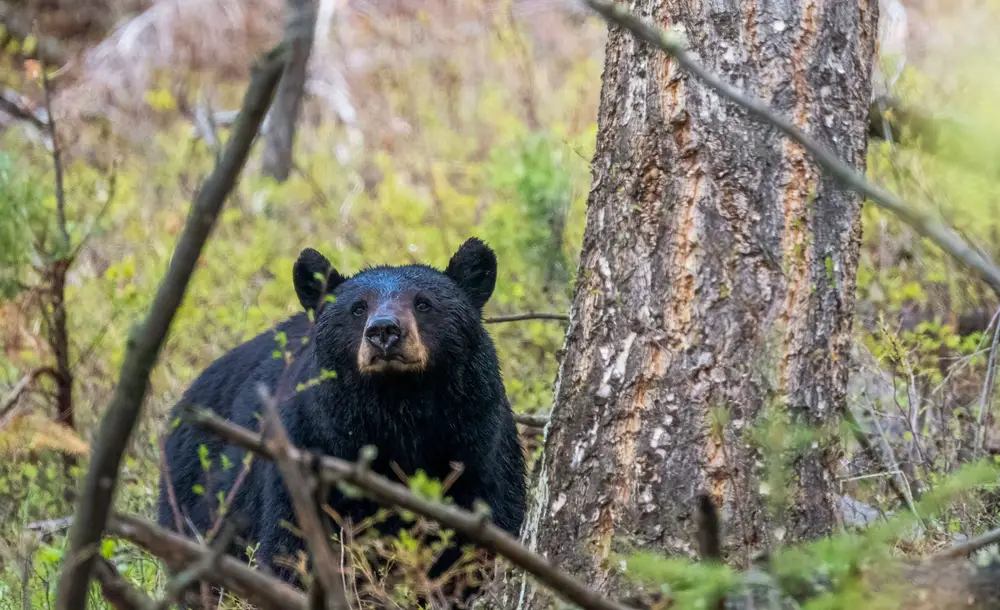
Bears are the heavyweight champions of the animal world when it comes to potentially destroying your camping gear. Their powerful sense of smell can detect food from miles away, leading them straight to your campsite if precautionary measures aren’t taken. If a bear gets hold of your food stash, it won’t only rob you of your meals, but it can also rip through tents and backpacks in its search for more. The National Park Service provides guidelines on how to store food properly to avoid bear encounters, suggesting the use of bear-proof canisters and hanging food high in trees.
In bear country, always cook and store food away from your sleeping area. Never leave food unattended, and dispose of food scraps properly to avoid attracting bears. If you encounter a bear, it’s crucial to stay calm and avoid running, as this can trigger their chase instinct. Making noise, appearing large, and slowly backing away can help de-escalate the situation. Remember, while bears are magnificent creatures, they are best admired from a safe distance.
3. Squirrels: The Tiny Terrors
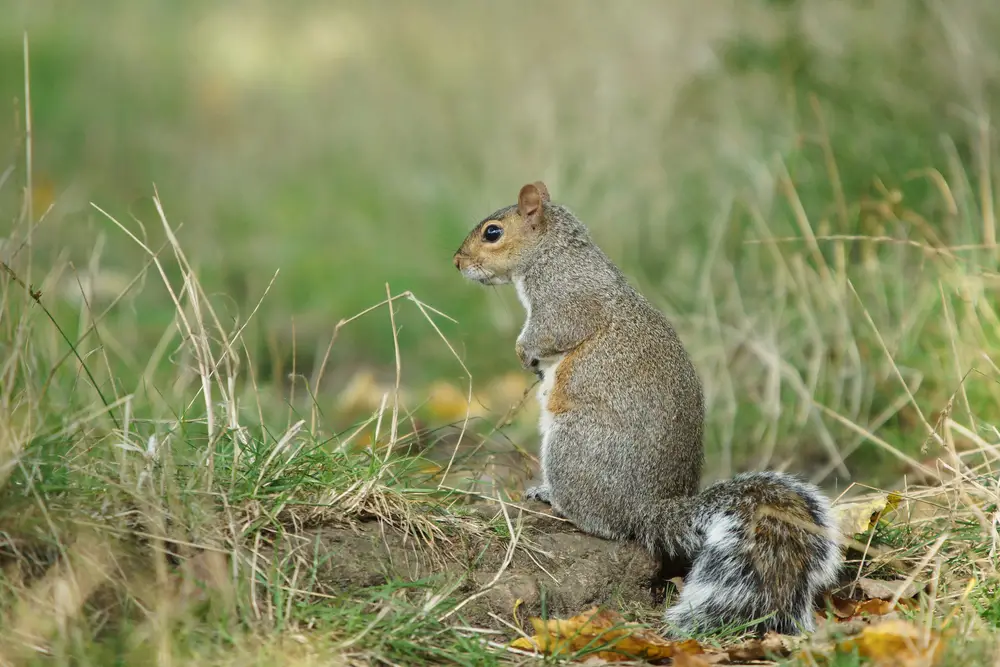
Squirrels may seem harmless with their fluffy tails and twitchy noses, but they can be surprisingly destructive to your camping gear. These little critters are incredibly adept at chewing through almost anything in their quest for food, according to National Geographic. Nothing is off-limits, from cooler lids to backpacks, if they smell something tasty inside. Their sharp teeth can leave you with damaged gear and spoiled food in no time.
Store food in sturdy containers that can’t be easily gnawed through to squirrel-proof your campsite. Use the campsite’s metal food lockers if available, as these are designed to keep small rodents at bay. Hanging food in a tree can also deter these tiny pests. It’s essential to remain vigilant and not underestimate the determination of squirrels. While they may not be as intimidating as bears or raccoons, they can still cause plenty of trouble if you’re not careful.
4. The Opportunistic Opossums
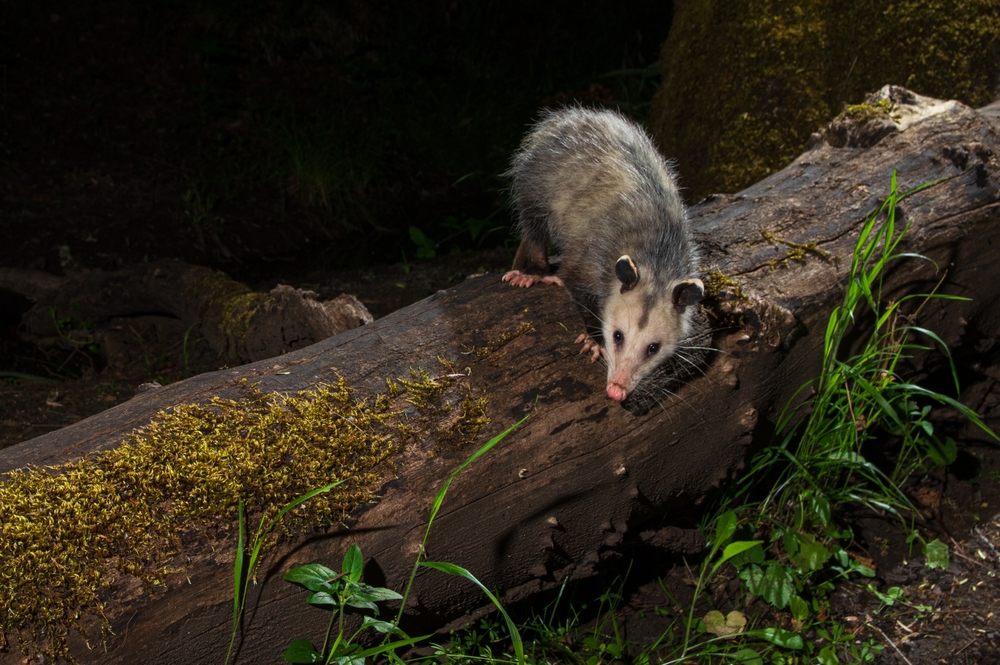
Opossums might not be the first animals that come to mind when thinking of camping nuisances, but these nocturnal creatures can be a real headache for campers. Known for their scavenging prowess, opossums are attracted to food scraps and any strong-smelling items left out in the open. While they’re not aggressive, they can still create a mess by tipping over trash cans and rummaging through your belongings.
To keep opossums at bay, be diligent about cleaning up after meals and storing food securely. Seal trash bags tightly and place them in animal-resistant bins, if possible. Opossums are more active at night, so be extra cautious about securing your campsite before dusk. They’re also known to play dead when threatened, so if you encounter one, it’s best to leave it alone and let it move on naturally. By taking these precautions, you’ll be less likely to have your gear disturbed by these nighttime visitors.
5. Porcupines: The Prickly Problem

Porcupines are fascinating creatures, but their curiosity and love for salt can lead them to your campsite. These slow-moving rodents are primarily attracted to items with salty residues, such as sweaty gear, hiking boots, or even food packaging. When drawn to your campsite, they can chew through gear straps and wooden structures, leaving behind a trail of destruction and quills.
To prevent porcupines from damaging your gear, store all items inside your tent or a secure, enclosed area. If you’re camping in porcupine territory, consider hanging your gear from trees or using protective coverings. It’s also wise to clean any items that might have accumulated sweat or other salty substances during the day. If you encounter a porcupine, keep your distance, as they can release their quills if they feel threatened. With careful planning, you can enjoy the company of these unique animals without the inconvenience of their destructive habits.
6. Sneaky Skunks
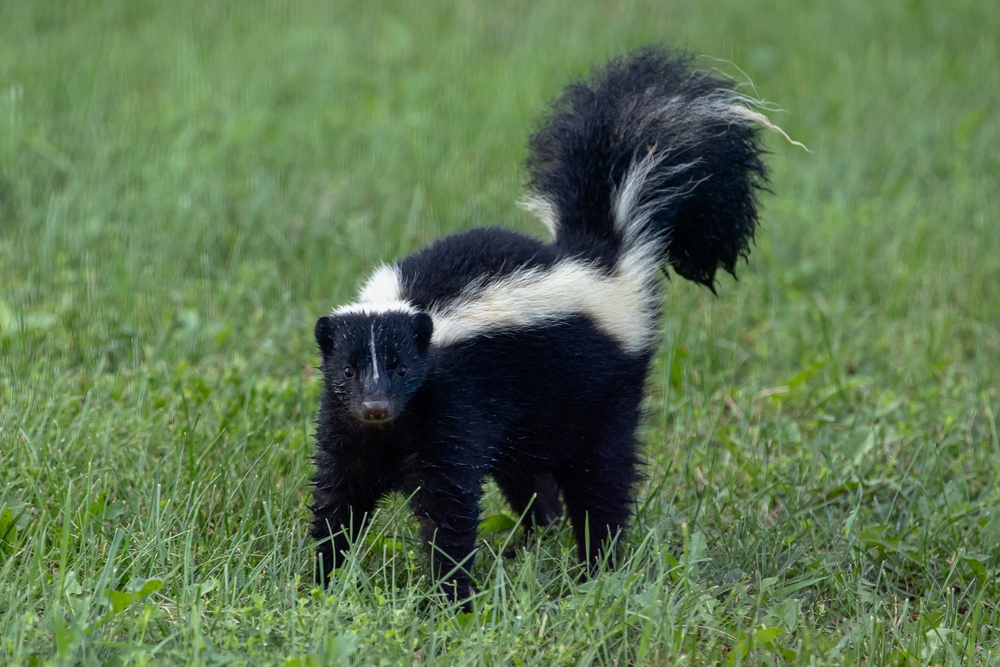
Skunks are infamous for their potent scent, but their curiosity can also spell trouble for your camping gear. These nocturnal foragers are drawn to food and trash left out in the open, and they have no qualms about tearing through bags and containers to get to it. While they’re not aggressive, a startled skunk can leave you with more than just a mess to clean up—they might spray, leaving a lingering, unpleasant odor behind.
To avoid skunk encounters, meticulously seal all food and waste in airtight containers. Skunks usually avoid humans, so maintaining a tidy campsite can help keep them at a distance. If you see a skunk near your gear, remain calm and give it space to move away without alarming it. Remember, preventing a skunk from accessing your belongings is preferable to dealing with the aftermath of their visit. Taking these steps will help ensure that your camping trip remains odor-free and enjoyable.
7. Crafty Crows
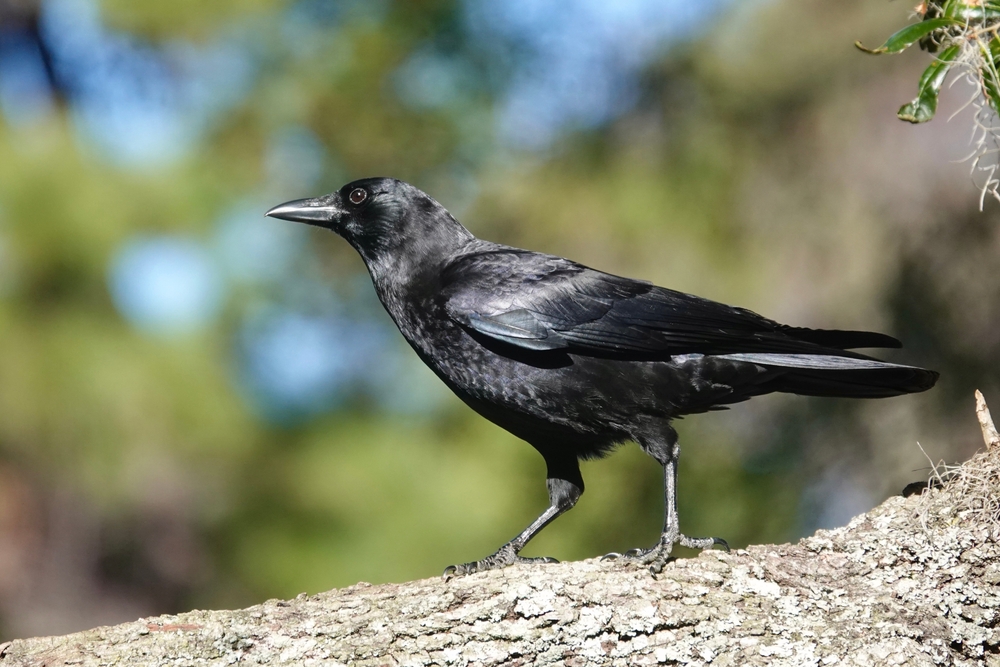
Crows are among the most intelligent birds, known for their problem-solving abilities and keen curiosity. If you leave shiny or brightly colored items out in the open, these avian kleptomaniacs might decide to make them their own. Campers have reported everything from utensils to small electronics disappearing, taken by these feathered thieves. Crows also have a knack for unzipping backpacks and getting into food containers, leaving a mess in their wake.
To protect your belongings from crows, store items inside your tent or in sealed containers when not in use. If you’re camping in an area with a high crow population, consider covering shiny objects or keeping them out of sight. It’s also wise to dispose of food waste quickly, as crows are adept at scavenging. While watching crows can be entertaining, it’s best to do so without them raiding your gear. By taking these precautions, you’ll keep your campsite crow-free and your supplies intact.
8. Rodent Raids
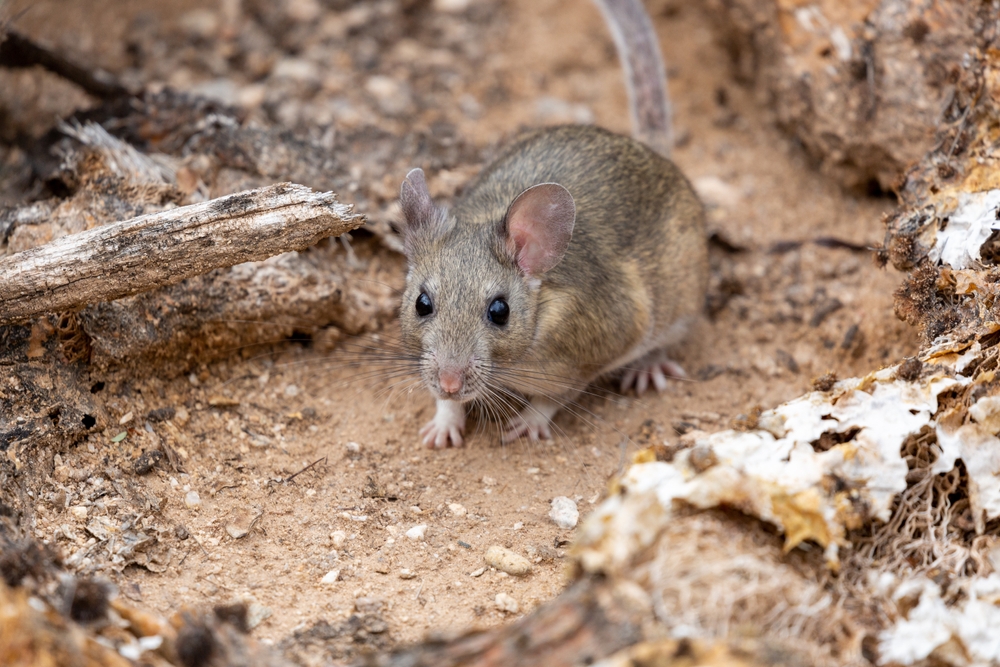
Mice and rats might be tiny, but their impact on your camping gear can be significant. These rodents are attracted to food crumbs and can chew through bags and containers to access your supplies. Once they’ve found a food source, they can quickly multiply, leading to a full-blown rodent invasion at your campsite. Not only can they ruin your provisions, but they can also spread diseases through their droppings, making them a serious concern for campers.
To prevent rodent raids, keep your campsite clean and free of food debris. Store all food in rodent-proof containers, and consider using traps or deterrents if you’re camping in an area known for rodent activity. Make sure to seal any potential entry points in your tent or camper to keep these critters out. By staying vigilant and maintaining a tidy campsite, you can reduce the likelihood of a rodent problem. Remember, prevention is key when it comes to keeping mice and rats at bay.
9. Foxes and Their Fancies
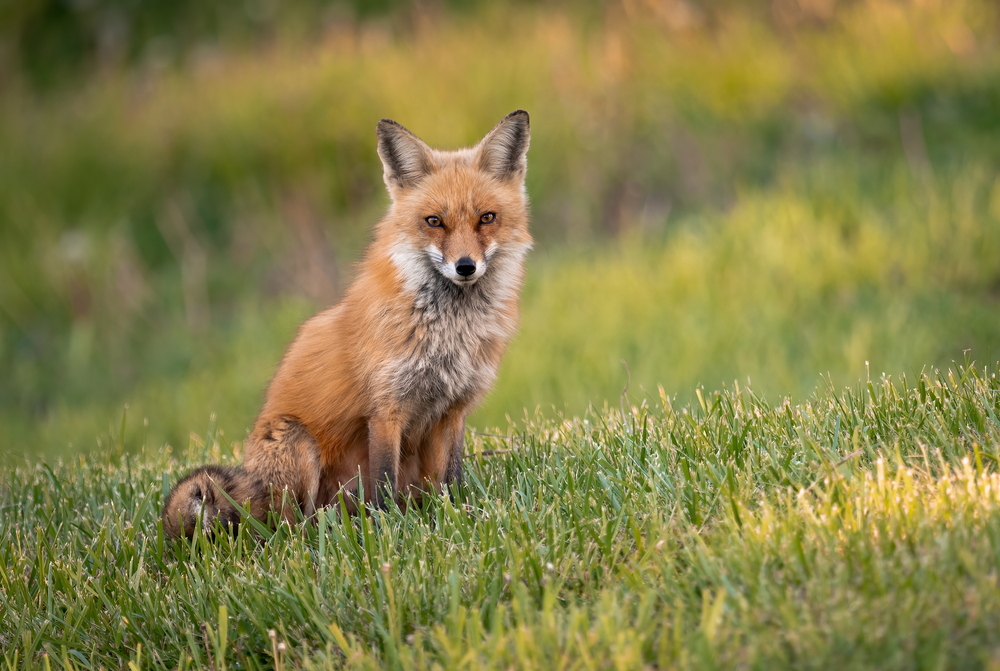
Foxes are curious and opportunistic animals that can be attracted to your campsite by the scent of food. These cunning creatures are known for their ability to sneak into campsites and make off with any edible items left unsecured. While they may not cause as much physical damage as larger animals, they can still make off with your food, leaving you short on supplies. Foxes are generally shy and prefer to avoid humans, but their nimble nature means they can quickly dart in and out of campsites.
To keep foxes from raiding your supplies, use secure containers and store food away from your sleeping area. Clean up any food waste promptly and avoid leaving out items that might attract them. Foxes are most active at dawn and dusk, so be particularly vigilant during these times. If you encounter a fox, remain calm and allow it to leave the area on its own. By taking these precautions, you can enjoy observing these fascinating animals from a distance without losing your provisions.
10. Pesky Pine Martens
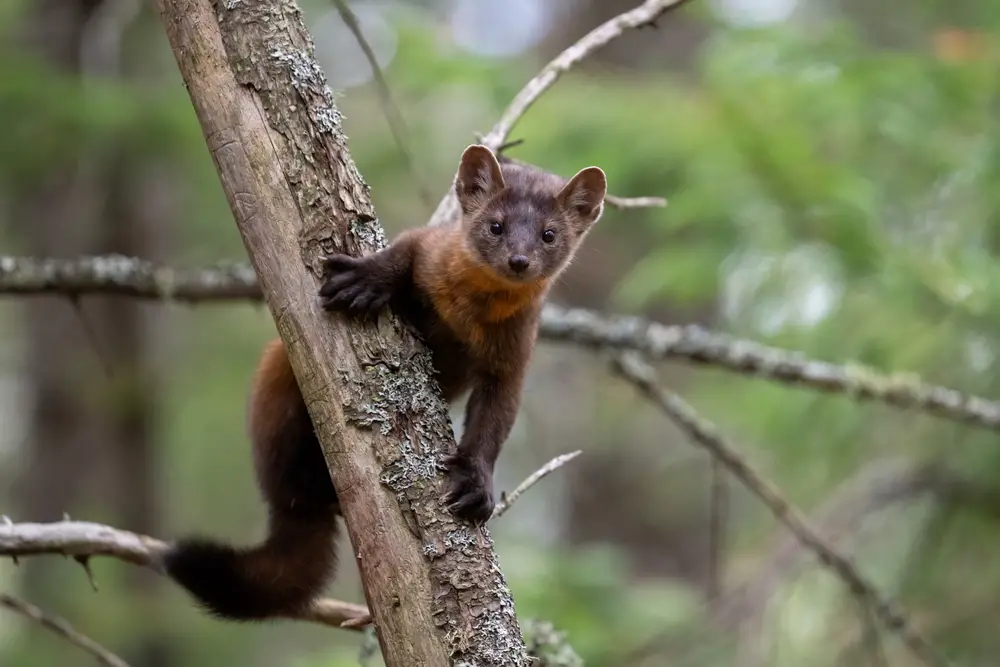
Pine martens might not be the most well-known camping intruders, but their agile climbing skills and curiosity can lead them to your campsite. These weasel-like creatures are mostly interested in food, but their sharp teeth and claws can cause unintentional damage to your gear. They’re excellent climbers and can access food hanging in trees if not properly secured. Once they discover a food source, they may return, causing repeated disturbances.
To deter pine martens, ensure all food is stored in secure, sturdy containers. Hang food high and out of reach, using ropes or cables that martens can’t easily climb. Keep your campsite clean and free of food debris to avoid attracting these animals. Pine martens are generally shy, so they may avoid human activity if you remain present at your campsite. By taking these steps, you can minimize the impact of pine martens on your camping trip and preserve your gear.
11. Coyotes on the Hunt
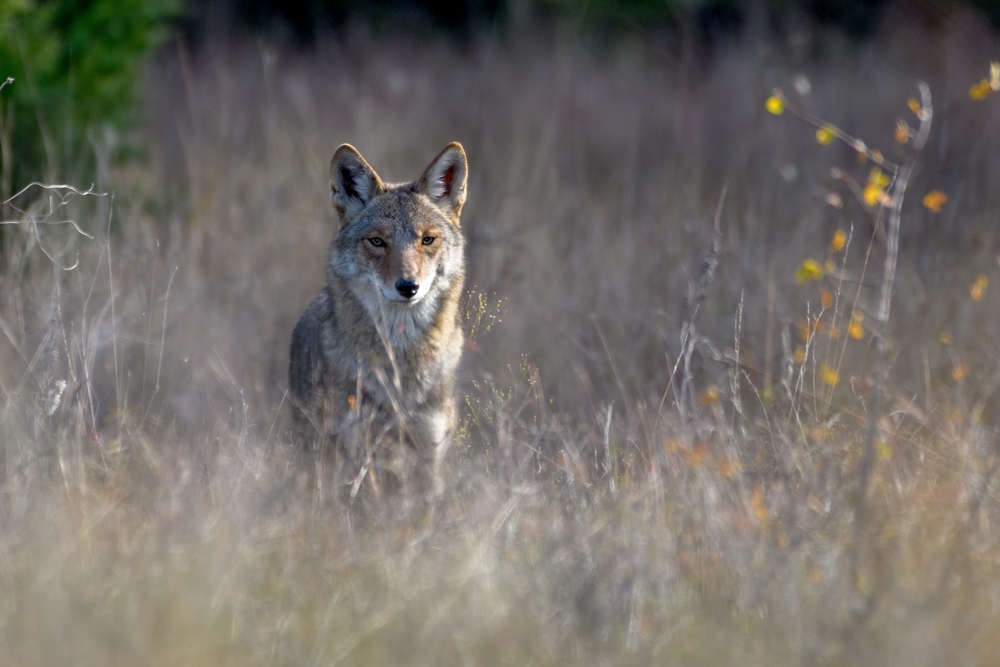
Coyotes are known for their adaptability and intelligence, which can make them a challenge for campers. While they generally avoid humans, they can be drawn to campsites by the scent of food or trash. Coyotes can rummage through your belongings, scattering trash and damaging gear in their search for a meal. They’re also known for their ability to open containers and access food, posing a risk to your supplies.
To prevent coyote encounters, secure your food in durable containers and store it away from your sleeping area. Dispose of trash properly and avoid leaving any waste out overnight. Keep your campsite clean and free of food odors to avoid attracting these cunning animals. If you encounter a coyote, make loud noises and appear threatening to encourage it to leave. By following these precautions, you can minimize the risk of coyote disturbances and protect your camping gear.
12. Mischievous Monkeys (In Some Regions)
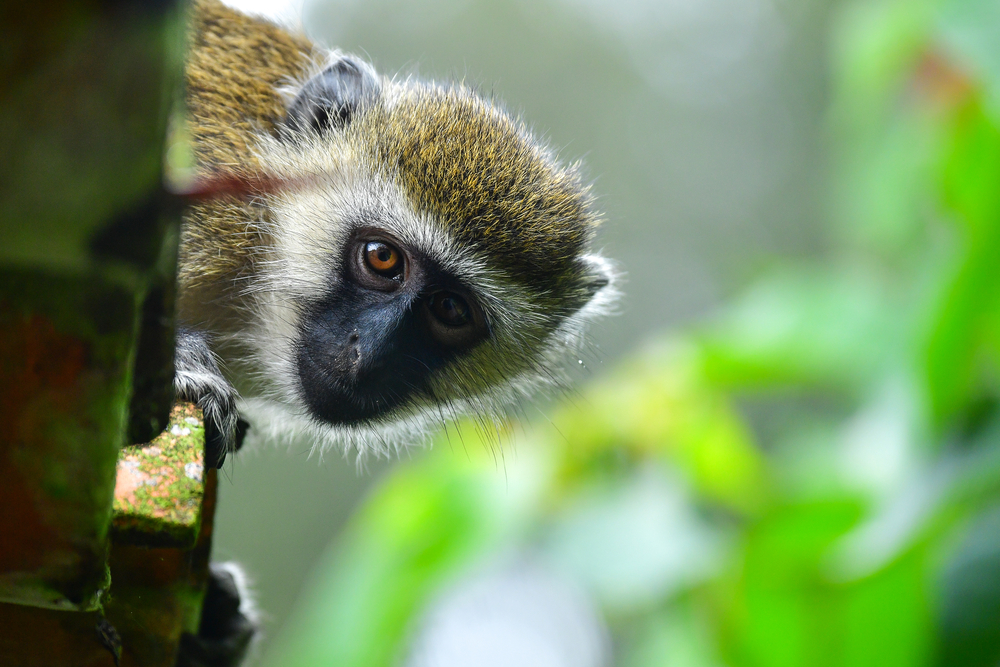
If you’re camping in regions where monkeys are native, such as parts of Africa or Asia, you might encounter these mischievous primates. Monkeys are incredibly curious and can quickly learn to associate humans with food. They can open bags, unzip tents, and even steal items directly from your hands if you’re not careful. Once they’ve targeted your campsite, they can be persistent in their attempts to access food.
To deter monkeys, store all food and valuables inside your tent or in lockable containers. Avoid feeding them, as this will only encourage further visits and potentially aggressive behavior. Keep a close eye on your belongings and avoid leaving items unattended. If monkeys approach your campsite, remain calm and use non-threatening gestures to encourage them to move on. By respecting these intelligent creatures and taking precautions, you can enjoy your camping experience without losing your gear to monkey mischief.
